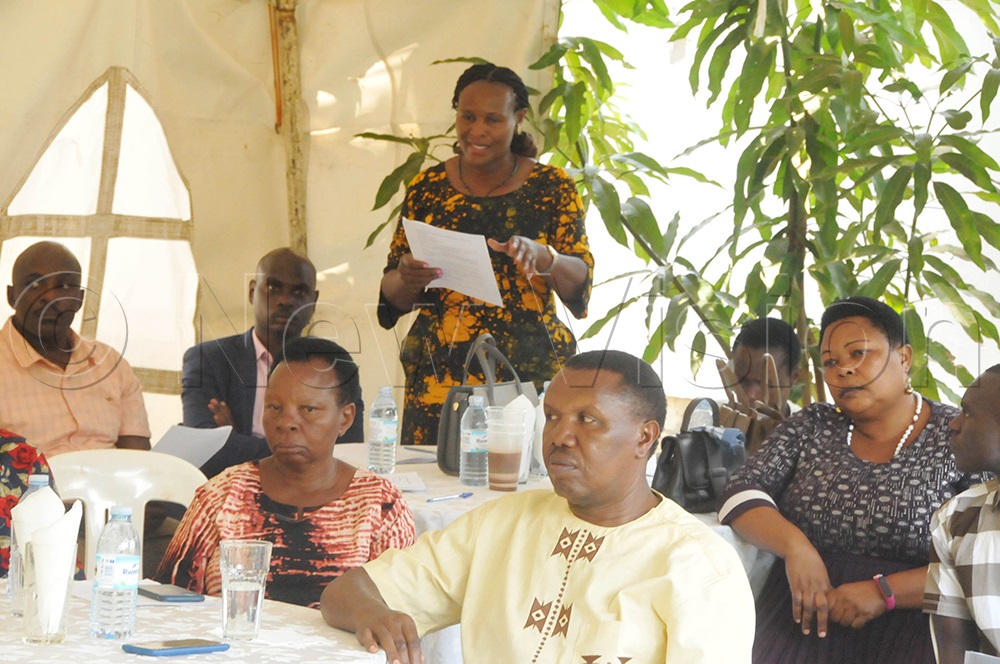Use clans to foster prosperity, development—Ankole leaders
Women are encouraged to embrace and love their clans, emphasising that it is a potential tool that can especially address issues concerning child upbringing.
Dr Sharif Mutabazi, the chairman of Greater Ankole Abasingo Club (last right), joined by an elder William Rubakare (2nd from right) with other members of Greater Ankole Abasingo Club handing over an award to Rinah Mushagara-treasurer Greater Ankole Abasingo Club (last left) for her outstanding contribution towards the growth of the club. (Credit: Abdulkarim Ssengendo)
_________________
Ankole region residents have been urged to utilise their clans to foster prosperity and development in their communities. A clan is a group of people who trace their lineage back to a common ancestor. These clans are fundamental to cultural societies, with each clan having a totem and a hierarchical structure.
The call was made by Greater Ankole Abasingo Club chairperson Dr Sharif Mutabazi, who described clans as potential drivers of development and unity if well used by their members.
Mutabazi made the call on August 3, 2025, while addressing members of the Greater Ankole Abasingo Club during their annual general assembly at Boma cell in Mbarara city. The club, which is a legally registered entity, comprises a diverse group of professionals and businesspeople from different districts of Ankole region.
Mutabazi condemned Ugandans using their clans to foster divisionism.
“The clan is a well-designed system that is supposed to foster unity, not divisionism. Fostering divisionism is shallow-minded. We need to get together and think about development and help each other," Mutabazi stated. 
Members of Greater Ankole Abasingo Club attending their annual general assembly on Sunday in Boma cell in Mbarara City. (Credit: Abdulkarim Ssengendo)
Rinah Mushagara, the treasurer of the club, encouraged women to embrace and love their clans, emphasising that it is a potential tool that can especially address issues concerning child upbringing.
“We need that cultural touch, and we can only get that one from elders through clans,” Mushagara added.
Justus Tumuhirwe, a retired civil servant, encouraged people to be proud of their clans and know their clan heritage and how their forefathers did things, as this will help them to prosper.
William Rubakare, another elder, expressed worry that culture will be eroded if no serious measures are put in place to preserve it.